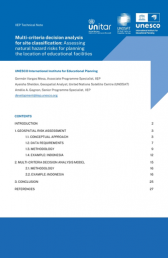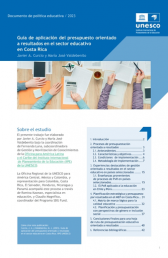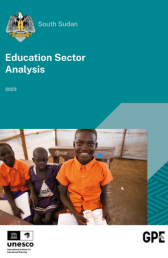
Langues
Anglais
Collections
Research papers IIEP
Année
2008
Pages
93 p.
Country
Version en ligne
A propos de la publication
Many children all over the world are not receiving education because they are disadvantaged or hard to reach. Providing education to such children is a concern of many ministries of education and international organizations, and non-formal education can, and does, play an important role in such efforts. This study provides and analytical account of the process to establish a basic education policy for educationally disadvantaged children in Uganda. It traces the origin of the policy in the context of the changing socio-political and education environment of the country, and against the background of basic education practices on the ground. It explores the unforlding of the various steps in policy formation and implementation, the roles and actions of differents stakeholders, and their impact on the nature and direction of othe process. The study also examines the relationship betwenn formal and non-formal education and the formal primary education system, the critical factors that have influenced the success of the policy work, and the choices open to education authorities and partners in taking this innovative process forward. The booklet offers insights into the challenges that education ministries and other stakeholders at different levels face when attempting to address the education needs of hard to reach children within a framework of equity, diversity and partnership, and the role that forms of non-formal education can play in improving access and quality for all.









